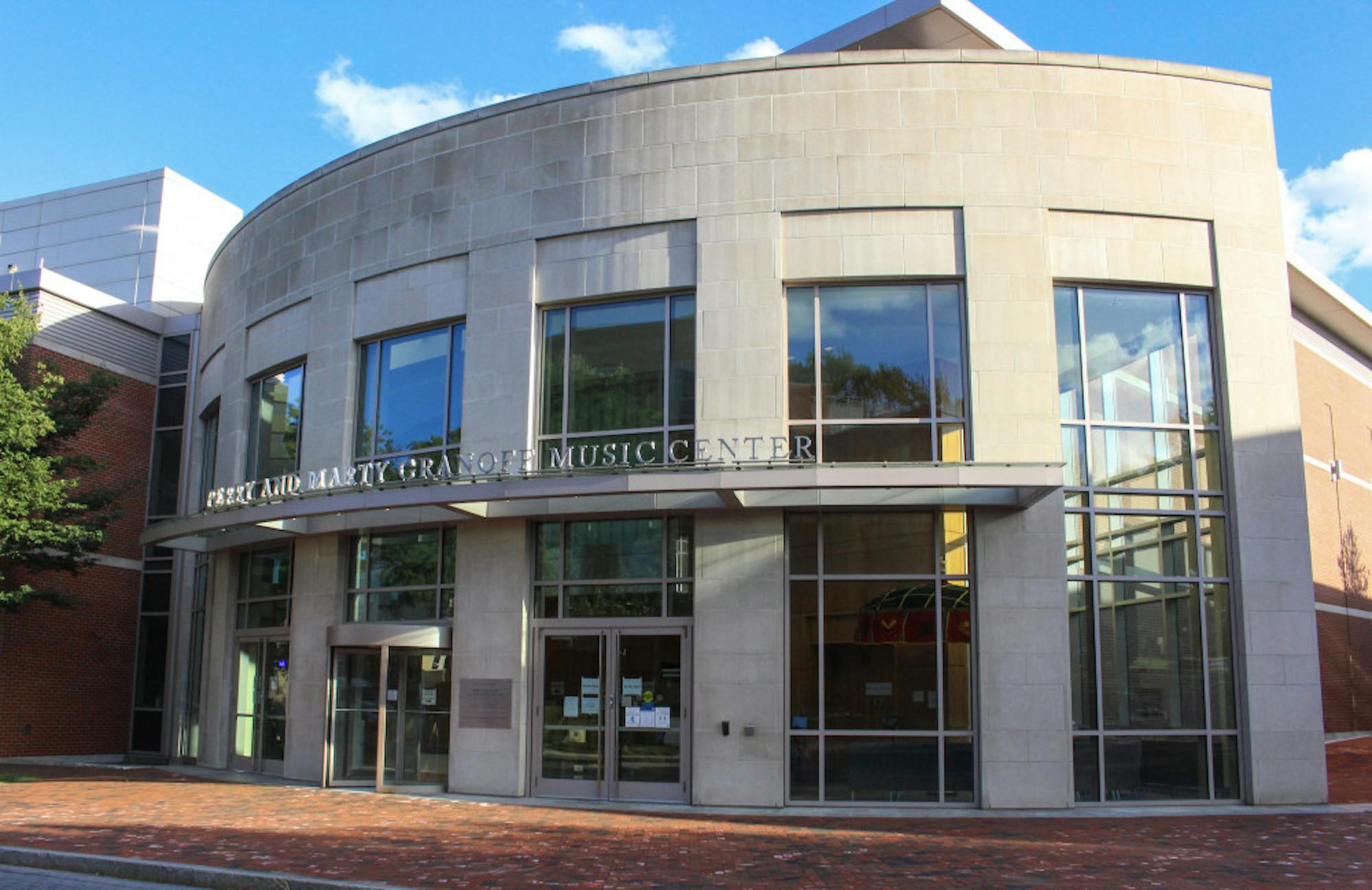In semesters past, those who have found themselves on the ground floor of the Granoff Music Center will likely have heard the entrancing rhythms of Kiniwe, the African music and dance ensemble of the Tufts music department. Taught and directed by Professor Emmanuel Attah Poku, Kiniwe is a course offered to Tufts students who are interested in learning about and participating in the traditional music, drumming and dancing of Ghana.
Poku, an esteemed master drummer from the Ashanti region of Ghana, was born and raised at the Ashanti king’s palace and has led a musical life; he was 5 years old when he began training with his grandfather, and learned music primarily by ear.
“My grandparents, they’d demonstrate, and then you’d have to do the same. They’d ask ‘Hey, I’m gonna play. Can you play this for me?’ So I got it from them,” Poku said.
West African music is seldom — if ever — notated, which Poku explained makes it difficult for musicians with different backgrounds to become accustomed to the tradition of playing by ear. “[Traditionally] we learn music by our ears. People here learn music by notation... [In Kiniwe], we are learning it in two ways: the traditional, which is how the Ghanaian people do it, and also how people do it here,” he said. This strategy allows students to understand the music more deeply.
Kimani Bishop, a second-yeargraduate student studying ethnomusicology who is holding the position of teaching assistant for Kiniwe for the third semester, explained that despite coming from what he describes as a “somewhat West African tradition,” Kiniwe has been a new and illuminating experience.
“I was born and raised in Trinidad and Tobago, and my musical background is steel pan and soca calypso music, which is like a combination of West African music and Caribbean music,”Bishop said.
“At first [Kiniwe] was somewhat, believe it or not, kind of foreign [to me], although there are connections with calypso music and West African music in Ghana ... It didn’t come as easily, at least at first, to me,” he said. "Trying to adapt and get that in order to perform my duties as a TA was challenging. But eventually I developed that skill. Once I got it, I just fell deeper in love with it and I wanted to learn more.”
Bishop shared that working with Professor Poku has allowed him to learn a great deal about the diversity and depth of West African culture. Although Poku is from the Ashanti region of Ghana, Kiniwe performs music and dance from all 16 regions of Ghana. The term “Kiniwe” is a word from the Voltarian people’s language, which is one of 49 in Ghana.
“Kiniwe means ‘Are you ready?’ And then you have to respond with ‘ya,’ which means ‘yes, we are ready,’” Poku said.
Kiniwe is an integral part of the music department, and is a large (and growing) community. According to Poku, the ensemble has even traveled to other locations in Massachusetts such as Worcester to perform at special events, in addition to holding regular concerts on campus.
“[Kiniwe] is becoming very popular and I hope it continues to grow and become more popular, and that opportunities can be opened to Professor Poku to expand,” Bishop said. “It would be very good for the Tufts and Boston communities.”
Bishop also expressed that his connection to and passion for Kiniwe has been steadily growing since he began his involvement with the ensemble. “The more I learn, the more I understand and the more I understand, the more I want,” he said. “So far it’s been an unquenchable desire.”






